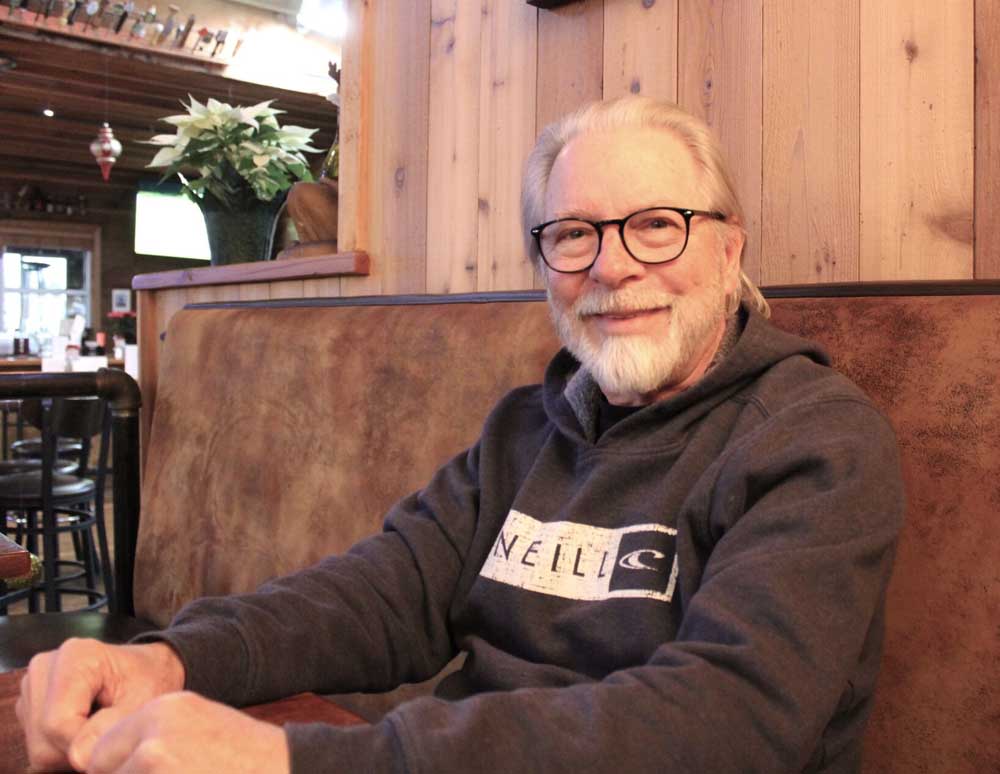Writer draws on AI for answers
Published 3:27 pm Monday, December 30, 2024

- John E. Wilkins, of Long Beach, Washington, has written five books of philosophical thought, submitting prompts to a computer artificial intelligence tool and reprinting the replies with very little editing.
LONG BEACH, Wash. — Some disguise the manner in which they employ artificial intelligence to assist their writing.
John E. Wilkins announces it.
He is publishing a set of five books in which he asked an AI device to analyze the Christian faith.
Wilkins proclaims he has “proved” the existence of a deity — and he taunts atheists to contest his conclusions.
“The notion that everything in the universe, including life on Earth, emerged purely by chance is difficult to sustain when we consider the complexity, order and fine-tuning observed in nature,” he writes. “The chances of life spontaneously arising from non-life without any guiding intelligence are astronomically low.”
Three books are already published. The cover of one, “Good News: The AI Guide to the Good News,” features a metallic robot hand reaching out to a human like the image on the Sistine Chapel ceiling.
Wilkins moved during his youth because his father was a U.S. Air Force officer. He has lived mostly in California, with some time in Florida. He earned a degree in philosophy, owned a solar company then became a stockbroker in the mid-1980s — “the best time ever to be a stockbroker in America.” After a career in financial services, he retired in 2015, moving to Long Beach a couple of years later to develop closer relationships with his children and grandchildren.
“Living on 6 forested acres in a small, close-knit community has been a wonderful change,” he said. “I enjoy the slower pace, lack of traffic and the beautiful hiking trails at Cape Disappointment and Leadbetter park.”
Although he had always kept journals, his publishing journey began at age 69 using traditional writing strategies. His first two books, “To Thine Own Health Be True” and “A Time for Health,” focused on recovering from illness through changing to a whole food, plant-based diet. A third, “The Power of Certitude,” explored his spiritual renewal.
He grew up as an atheist, changing in later life as he broadened his education. “Like the prodigal son in the Bible, I turned my back on the blessings of God and went my own way, chasing the promises of quick wealth and easy money,” he said. “I focused on self-gratification, thrill-seeking and sought-after peak experiences. I poured my life into a party lifestyle that seemed dazzling on the outside but, as I later learned, left me empty within.”
Artificial intelligence is an umbrella term for computer programs that purport to “think,” especially controversial among college professors because it creates shortcuts for student research. In popular culture, its potential dangers were highlighted in Stanley Kubrick’s 1968 movie “2001: A Space Odyssey,” where a “thinking” computer called HAL 9000 killed astronauts on a mission to Jupiter.
An AI chatbot allows users to type prompts and receive coherent replies like a customer on an insurance company website. Wilkins uses one called ChatGPT-4. “What I discovered was astonishing. The depth of insight the AI provided into biblical teachings was remarkable,” he said. “Intrigued, I experimented further, and the responses I received left me breathless and in awe.”
Many of Wilkins’ chapters take atheists to task. “I worry that they lead others into a sense of emptiness and hopelessness by declaring that life has no inherent meaning,” he said.
His AI project has garnered interest outside the peninsula. This fall, Wilkins was interviewed on a talk radio show based in his longtime home of Santa Cruz and another from Sacramento. “Both hosts reached out to me because they found the idea of an AI — a smart but soulless machine — writing about the ‘Good News of the Gospel’ to be fascinating,” he said.
“If you read these books, they will tell you in a logical, reasonable way why the Christian worldview works, because it creates a situation in your life where you are in the flow of the absolute truth of what existence of all about,” he said. “We have been blinded, because all of a sudden human beings got really smart around the 18th century and ever since then we think we don’t need God anymore.”


